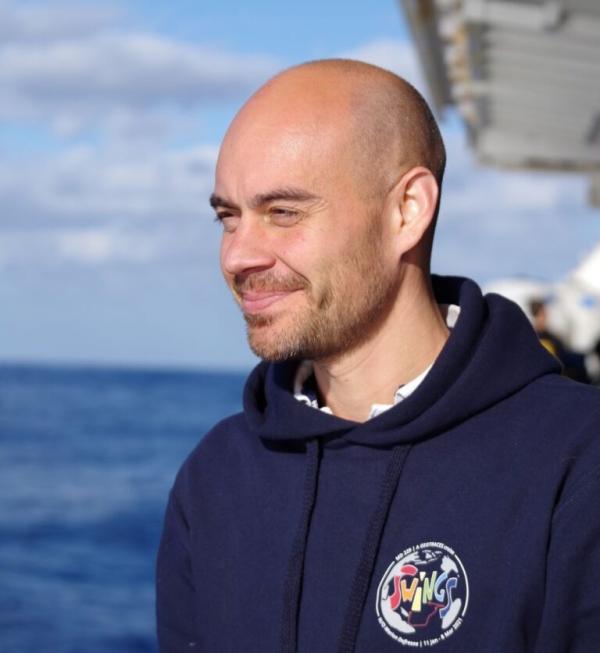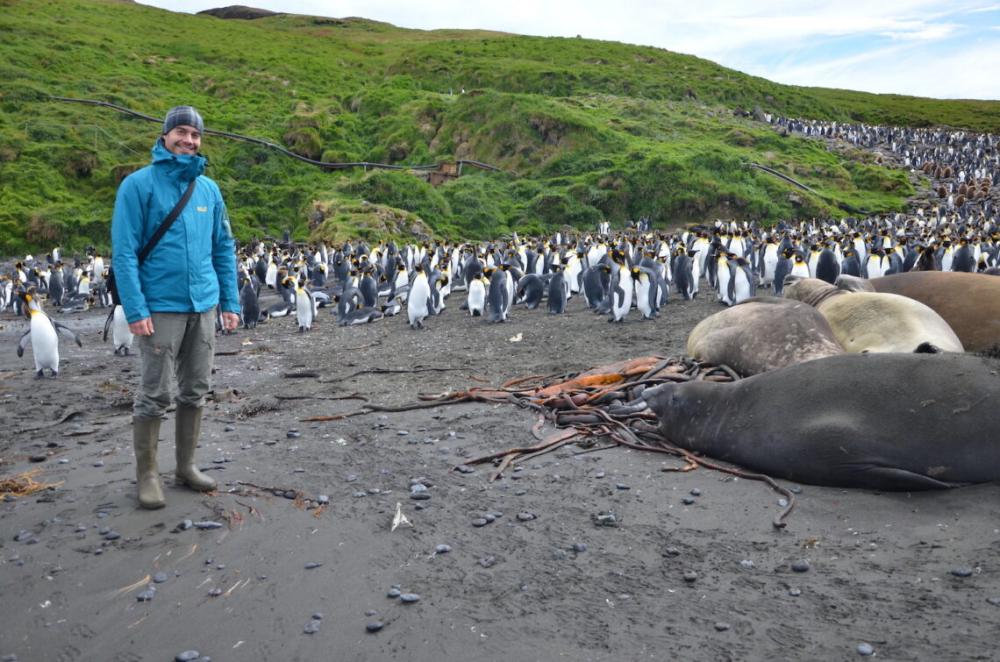How fine scales structure the distribution of large predators
Cédric Cotté is in charge of monitoring large marine predators as part of the BioSWOT-Med campaign. Here he explains how the characteristics of the mesoscale structure the search for food by large marine predators by generating favourable zones where prey are aggregated.
Cédric Cotté
RESEARCH THEMES - Cédric Cotté is a researcher at the Muséum National d'Histoire Naturelle in the LOCEAN laboratory. His research focuses on the ecology of intermediate organisms (crustaceans, fish and gelatinous organisms) and on how the physical environment structures prey-predator interactions with marine top predators (seabirds, marine mammals).
What marine predators do you expect to find south of the Balearic Islands, and how are you studying them?
We expect to encounter cetaceans (whales and dolphins), seabirds, tuna and turtles. During the BioSWOT-Med cruise, we will be using visual observations to study them. Other studies use biologging, i.e. electronic devices fitted to animals to track their trajectory and behaviour. Passive acoustics can also be used to detect acoustically active species.
Why is it important to study them? Are any of these species threatened? If so, are there any measures in place to protect them?
Population monitoring is important for studying possible trends. Some species are threatened at different levels by ship strikes (large whales), by-catch (dolphins and turtles), pollution (e.g. increased noise) and climate change. Marine reserves and marine protected areas could be a good tool for studying the behaviour and life cycle of these predators.
What are the existing hypotheses to explain the distribution and abundance of these species in the Mediterranean?
At the mesoscale, eddies and frontal features structure the foraging of top predators by generating zones favourable to prey aggregation. Measuring fine-scale features from space and from cruising and observing predators is a unique opportunity to validate this hypothesis during BioSWOT-Med.
Cédric Cotté with king penguins and elephant seals on Possession Island, Crozet archipelago.
Contact us: Tosca Ballerini
More information






